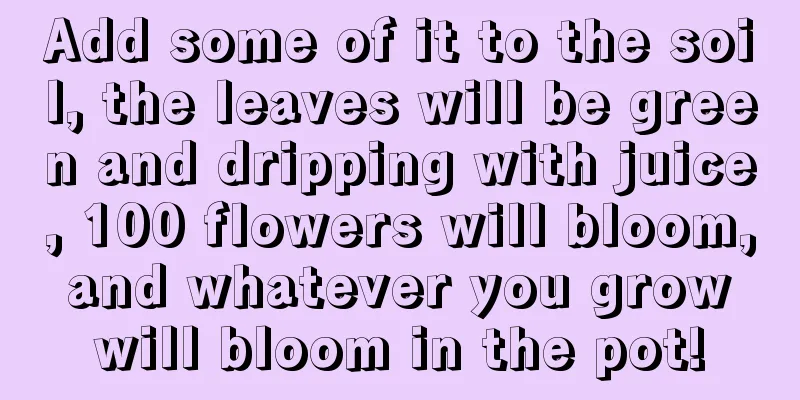How to water flowers correctly

What water is best to use?The water used for watering flowers should preferably be neutral or slightly acidic. The water that people usually use is river water, pond water, rain water, tap water or well water. Among these types of water, rainwater is the best, as it contains more natural substances and is most needed by plants. The second best is river water or pond water, which are rich in nutrients and have a mild nature. Pond water with a slightly yellowish-green color, in particular, contains a variety of nutrients. Unpolluted water from roadside ditches is also good water. Should the water used for watering flowers be exposed to the sun?It is best to water the flowers with magnetized water, rainwater, river water, or pond water. As long as the water temperature is close to the temperature of the potting soil, it can be used to water the flowers at any time. In winter, the water for watering the flowers needs to be placed in the sun for a while, or some warm water can be added to make the water temperature close to the temperature of the potting soil before using it to water the flowers. In addition, when watering flowers with tap water, it is best to first use a small water tank or basin bucket and place it in the sun for 2 to 3 days before use. This will allow some harmful impurities in the water to precipitate, and also allow the substances contained in the water to oxidize and purify, so that the temperature of the water is close to the temperature of the potting soil, not too cold or too hot. Is it okay to water flowers with tea water?Some flower growers often use tea water to water their flowers, thinking that this can add nutrients to the flowers and make them grow better. In fact, doing so is not only unhelpful to the flowers, but will cause certain harm. Because tea contains a lot of alkaloids, they will affect the flowers' absorption of organic nutrients in the soil; and tea leaves covering the surface of the potting soil will affect the soil's water infiltration and air permeability; in addition, tea leaves will also rot and mold, attract pests, which can be said to be harmful rather than beneficial. |
<<: How to judge whether flowers are lack of water
>>: Do-it-yourself breeding is fun
Recommend
Lithops cultivation method and watering
Lithops , belonging to the genus Lithops in the f...
How to plant cabbage seeds
Cabbage seed planting time Cabbage is suitable fo...
The value of marigold
Garden value Marigold is not a tall plant, but it...
Can dahlia rhizomes be eaten?
1. Its rhizomes are edible The rhizomes of dahlia...
How to grow jasmine in winter
1. Avoid cold wind For jasmine, the weather after...
What is the function of plant flowers?
1. Reproduction The flowers of plants are the org...
How to grow Monstera bonsai (with pictures)
1. Proper lighting It can tolerate shade but is v...
Grape management methods in February
February is a critical period for grape managemen...
Time and method of fertilizing cucumbers
Cucumber is a fast-growing vegetable . In order t...
Is hydrangea easy to grow? Which varieties are easy to grow?
1. Is it easy to raise? Hydrangea can be said to ...
Cultivation method of Hovenia dulcis
1. Maintenance methods 1. Temperature: Hovenia du...
How to change pots for Fire Festival
Fire Festival Repotting Preparation Look at this ...
How to deal with and prevent succulent plants from growing too long
1. How to deal with succulent plants after they g...
How often should you water orchids?
How often should you water orchids? When caring f...
What vegetables can be grown in winter?
1. Spinach It has good cold resistance, unlike so...









